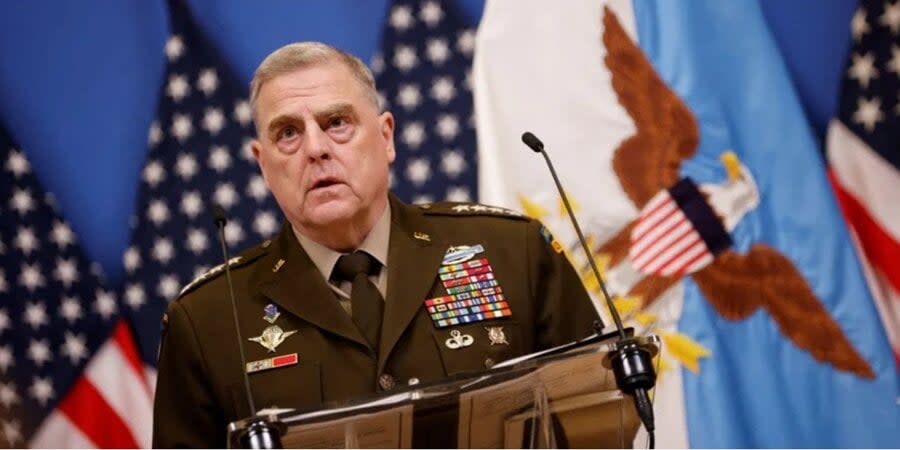The leak of classified US documents. How would it affect the course of the war?

There are typically quite strict procedures for handling classified information. I have quite a lot of personal experience dealing with secret documents - everything is done in such a way as to prevent a leak. But, sometimes, people are careless about it. A lot of people probably saw the screenshots of these documents. Clearly, it was printed on paper. Someone folded it, then re-photographed it. The photo by itself is enough for American counter-intelligence to track down the source of the leak in the shortest possible time.
Much of this information ended up in the public domain this way. It can be used in different ways. The Russians are trying to take advantage of this as much as possible, though the actual information also contains some bitter pills for them.
If we exclude the New York Times story, this leak initially started from the Russian Z-channels. But, of course, only part of these materials concern Ukraine. Still, this is the part they promoted, especially certain aspects. For example, the report that Ukraine is not ready for a counteroffensive. This has a clear intention to convince Ukrainians - saying, you are unprepared, and we al-ready know everything about you.
Read also: Pentagon leaks nothing more than “standard special operation”, says military intelligence chief
The second thing I noticed: regarding the wiretapping of Zelenskyy, this is unpleasant, but they are more likely to be listening to official communications than his private ones. But this is, again, still unpleasant. It also fits in with a previous scandal about when Angela Merkel was tapped. This is intended to undermine trust between allies, but Russia is trying to overdo it here. The editing of the documents was recorded, and it calls into question the authenticity of the rest of the leak. Most likely, the Russians mixed up the documents and distorted, for example, the proportion of losses there. They then pushed it to the Western media, who published these figures, and now Russians are using it. The so-called "return" started. Now they are publishing data with reference to Western sources. Most likely, this data was falsified by Russia in this mix of true and false documents.
And about how this whole leak could affect US relations with partners, let's go back to where I started. Suppose there is a real version that it was a controlled leak. In that case, the Americans should obviously conduct, or they have already conducted, some communication with their key partners to explain it to them, but it is unnecessary. And if it's not a controlled leak, then no one is safe.
A few years ago, a scandal in Great Britain occurred when a high-ranking official was resting in a park and left behind a briefcase with secret documents. So, such things happen to everyone. If there is a basic level of trust, then all these issues can be resolved. It will have a temporary effect, perhaps, on the amount of information that is shared. The well-known intelligence alliance "5 Eyes" (Five Eyes) may be more reticent about sharing information for a while, but I don't think it will have a long-term effect.
Journalists should not take this personally, but another problem here is the issue of sensational media. All respectable publications are sick of it. The topic of the war in Ukraine is extremely popular today, especially the upcoming Ukrainian offensive. If a headline has a "Ukrainian counteroffensive," it is guaranteed to have readers. That is how I see what's going on. And what about the sources of used by mass media? They may even be authorized to transmit certain messages, certain signals in the context of information policy in general. In war conditions, this is also an information conflict, hiding under the guise of "trustworthy sources."
At the same time, there is a positive function to such messages. For example, US intelligence believes that Ukraine's lack of ammunition and equipment could cause its forces to fall far short (as stated) of Kyiv's initial goals for the expected counteroffensive. The positive side is that it signals to our partners to increase aid to Ukraine. Politicians react to it. This is far from the first time public attention has been used. We have been observing this approach for the past 12 months or more. It works quite effectively, and the position of political elites is changing. The most prominent example is Germany. If you look at the evolution of German policy regarding support for Ukraine, this is one of the tools which worked quite effectively for such policy changes.
The opinion that to end the Russo-Ukraine war as quickly as possible, Ukraine must win, is already prevalent. Nevertheless, there are still those who hesitate. The camp which adheres to the correct position tries to influence its opponents similarly.
We’re bringing the voice of Ukraine to the world. Support us with a one-time donation, or become a Patron!
Read the original article on The New Voice of Ukraine

